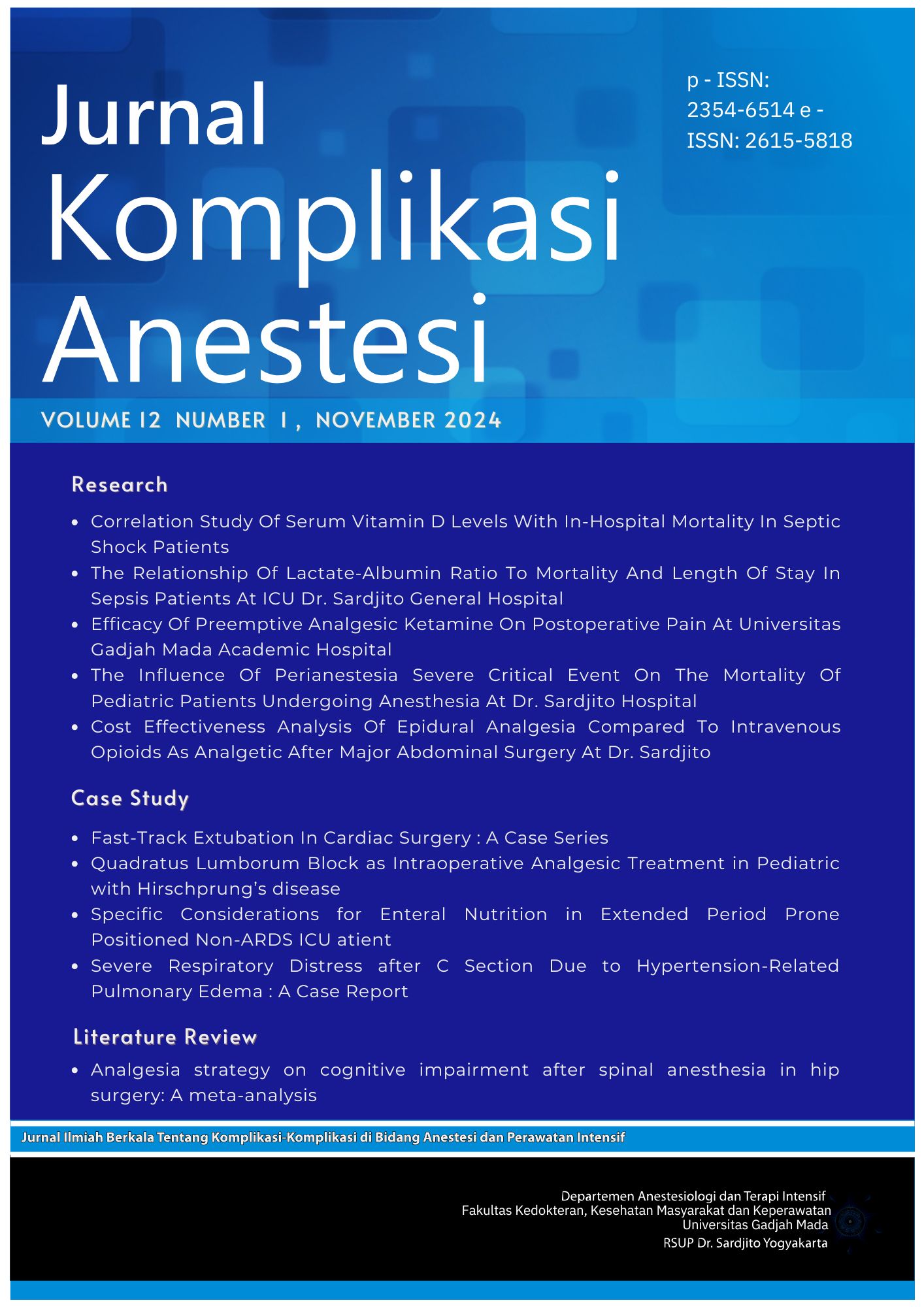FAST-TRACK EXTUBATION IN CARDIAC SURGERY : A CASE SERIES
Abstract
Fast-track extubation (FTE) has been shown to reduce the incidence of prolonged mechanical ventilation, resulting in shorter hospitalization, lower morbidity, mortality, and hospital costs. We present a case series of fast-track extubation involving two females aged 31 and 33 with Atrial Septal Defect (ASD) and a 33-year-old male with Ventricular Septal Defect (VSD) scheduled for defect closure. These patients were in good clinical condition with normal biventricular function and a low probability of pulmonary hypertension. The anesthesia and surgery procedures proceeded smoothly, with cardiopulmonary bypass time < 90 minutes, aortic cross-clamp time < 60 minutes, no residual shunt, acceptable lactate and blood gas analysis, stable hemodynamic with low doses of vasoactive agents, and adequate analgesia. Following the successful execution of the fast-track extubation protocol in the operating theatre, the patients were transferred to the intensive care unit (ICU) where they received postoperative management. The total ICU length of stay was < 24 hours, demonstrating the safety and efficacy of FTE for simple cardiac procedures and favourable outcomes. This approach is aimed at accelerating patient recovery, reducing complications, and enhancing overall surgical outcomes.
Copyright (c) 2024 Paramita Putri Hapsari, Bhirowo Yudo Pratomo, Bambang Novianto Putro

This work is licensed under a Creative Commons Attribution-ShareAlike 4.0 International License.
The Contributor and the company/institution agree that all copies of the Final Published
Version or any part thereof distributed or posted by them in print or electronic format as permitted herein will include the notice of copyright as stipulated in the Journal and a full citation to the Journal.

















